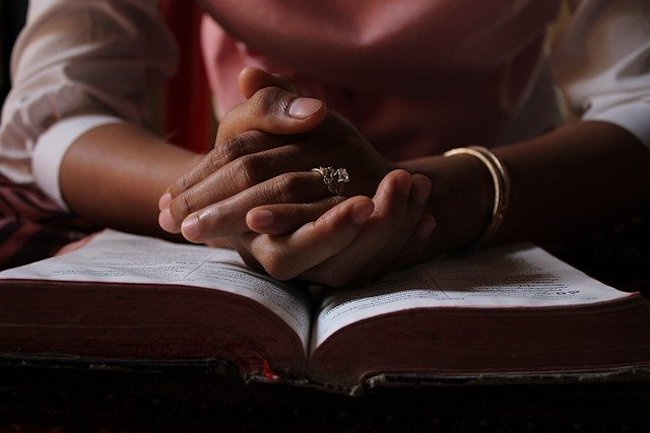Prayer in the Hebrew Bible by Myra Kahn Adams for Town Hall
Welcome to our Bible study and to a community of readers/commenters who passionately share, compare, and contrast their biblical knowledge and insights.
Today we begin a two-part series on prayer in the Hebrew Bible/Old Testament, and next week, the New Testament — starring Jesus, who taught his disciples how to pray. Both Testaments offer inspiring prayers that have comforted humankind since ancient times.
The first time prayer was alluded to was in Genesis, the first book of the Hebrew Bible. I write “alluded to” because the word “prayer” does not appear in the verse:
“Adam made love to his wife again, and she gave birth to a son and named him Seth, saying, ‘God has granted me another child in place of Abel, since Cain killed him.’ Seth also had a son, and he named him Enosh. At that time people began to call on the name of the Lord” (Genesis 4:25-26).
Although the word itself is absent, the meaning of the prayer process — behavior and thinking required to achieve the desired outcome — is defined in the verse “people began to call on the name of the Lord.”
Calling on the name of the Lord necessitates an ongoing relationship built on praise and trust. Fundamental to that relationship is believing and acknowledging that He is Almighty God, Creator of the universe, and you are not. Psalm 139:13 reads: “For you created my inmost being; you knit me together in my mother’s womb.”
And since God knows your past, present, and future, He knows your prayer needs before the thoughts are formulated in your mind.
While researching this study, I found a lesson titled “The Most Powerful Prayers In The Bible” by Maricris Navales. Under the sub-head, “Applying the Bible Prayer to Your Daily Life,” she wrote, “This world will not define our identity but God. Our value and worth are secure in Him. Our God knows us better than anyone else, even ourselves. We can trust and hold on to his sovereignty. We can come to God in our most vulnerable state. And he can turn our weakness into his glory.” (For more about “weakness” and prayer, refer to Vol. 71.)




